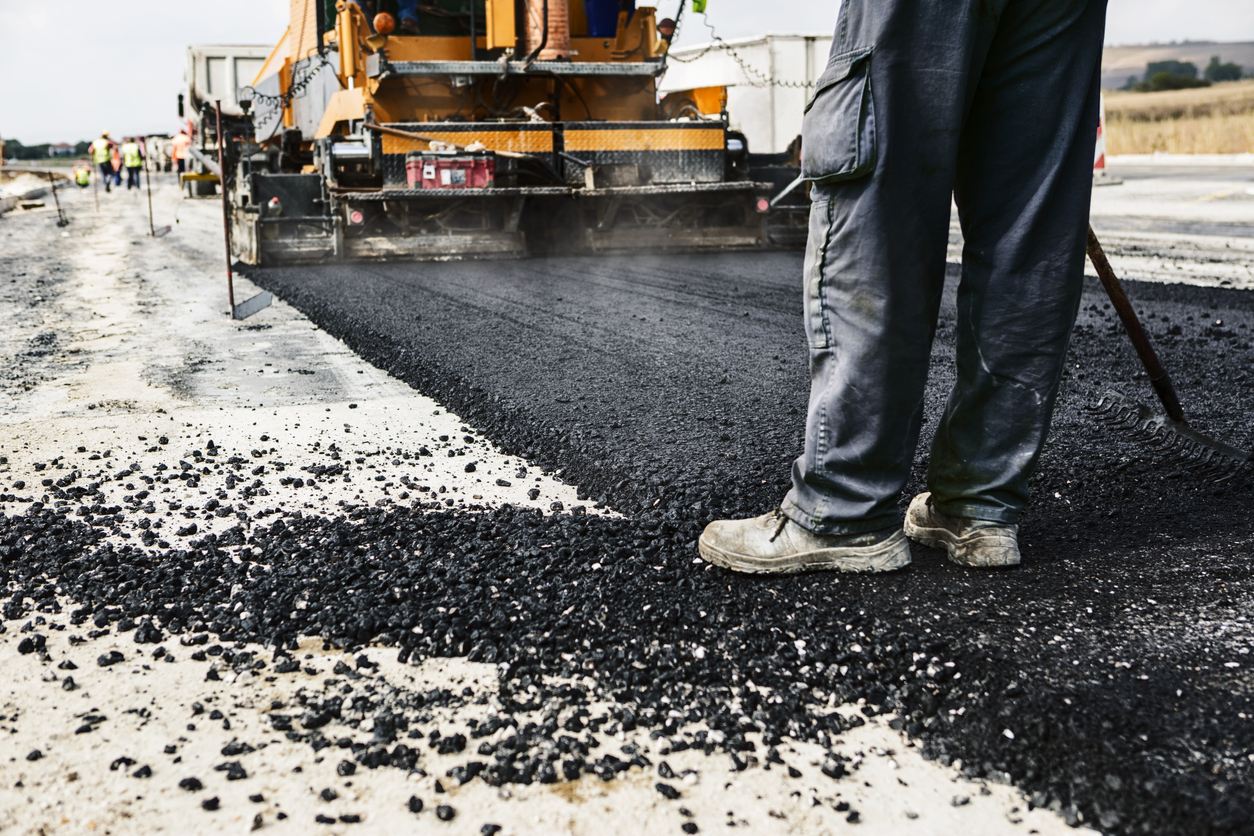How Wigmore Trading is Revolutionizing Road Construction with Coal Tar Supply in Nigeria
How Wigmore Trading is Revolutionizing Road Construction with Coal Tar Supply in Nigeria
Are you tired of bumpy and deteriorating roads that create endless traffic jams? Look no further because Wigmore Trading is here to revolutionize road construction in Nigeria! With their innovative use of coal tar supply, they are paving the way for smoother, more durable roads that will transform your daily commute. In this blog post, we will dive into the incredible impact Wigmore Trading is making on the Nigerian infrastructure scene and how their groundbreaking approach to road construction is set to change the game. Get ready to discover a future where potholes become a distant memory and driving becomes an absolute pleasure!
Introduction to the Coal Tar Industry in Nigeria
The coal tar industry in Nigeria has seen significant growth and development over the years, thanks to companies like Wigmore Trading. Coal tar, also known as bitumen or asphalt, is a byproduct of the distillation of coal and is widely used in road construction due to its durability and resistance to weathering.
Historically, the Nigerian government had a monopoly on the production and supply of coal tar for road construction. However, with the privatization of the industry in 1999, private companies such as Wigmore Trading have been able to enter the market and provide high-quality coal tar at competitive prices.
One major advantage of using coal tar in road construction is its ability to withstand heavy traffic and harsh weather conditions. This makes it an ideal choice for Nigerian roads that are constantly subjected to extreme temperatures, heavy rainfall, and vehicular wear and tear.
In addition to being durable, coal tar is also cost-effective compared to other alternatives such as concrete. This has made it a popular choice among developers and contractors looking for efficient ways to construct roads without breaking their budget.
Moreover, with advancements in technology, modern methods of producing coal tar have been developed which ensure a more consistent quality product. This has addressed previous concerns about inconsistencies in quality that were common when the government held a monopoly on production.
The Importance of Coal Tar in Road Construction
Coal tar, a by-product of coal processing, has been used for centuries in various applications such as roofing, paving, and waterproofing. However, one of its most significant uses is in road construction. In fact, coal tar has been an essential component in the construction of roads for decades due to its numerous benefits and properties.
Firstly, coal tar is known for its excellent binding properties. When mixed with other aggregates such as gravel and sand, it forms a strong and durable surface that can withstand heavy traffic and extreme weather conditions. This makes it an ideal material for road construction, especially in high-traffic areas. The binding property of coal tar also prevents the loss of loose materials from the road surface, reducing maintenance costs in the long run.
In addition to its binding properties, coal tar also has excellent water resistance capabilities. Roads constructed with coal tar have a lower susceptibility to water damage compared to those using traditional bitumen or asphalt. This is because coal tar forms a waterproof barrier between the road surface and underlying layers, preventing water from seeping through and damaging the foundation of the road.
Moreover, roads constructed with coal tar have shown better resistance to wear and tear over time. The combination of its strength and resistance to water damage makes it less susceptible to cracking or potholes caused by heavy vehicles or prolonged exposure to rainwater.
Wigmore Trading’s Role in the Coal Tar Supply Chain
Wigmore Trading plays a crucial role in the coal tar supply chain in Nigeria. As a leading supplier of high-quality coal tar products, Wigmore is revolutionizing road construction in the country and contributing to its overall economic growth.
As with any supply chain, there are multiple stages involved in the production and distribution of coal tar. It starts with the extraction of coal from mines and then goes through various processes such as purification, distillation, and blending before it reaches the end consumer – road construction companies.
This is where Wigmore Trading steps in. The company sources its coal tar from reliable suppliers who adhere to strict quality standards. This ensures that only the best quality raw material is used for their products.
Once the raw material is procured, Wigmore’s team of experts closely monitors every step of the production process to ensure consistency and excellence in their final product. The company also invests heavily in advanced technology and equipment to optimize efficiency and maintain high-quality standards.
One of Wigmore’s key strengths lies in its extensive network and distribution channels across Nigeria. This enables them to efficiently supply their coal tar products to customers all over the country. Their strategic partnerships with transportation companies allow for timely delivery without compromising on product quality.
Moreover, Wigmore Trading’s commitment to sustainability is evident throughout their operations. They prioritize responsible sourcing of raw materials and have implemented environmentally-friendly practices at their production facilities.
How Wigmore Trading is Revolutionizing Road Construction in Nigeria
Road construction in Nigeria has long been a challenge, with poor road conditions being a major hindrance to economic growth and development. However, Wigmore Trading is changing this narrative by revolutionizing road construction through its supply of coal tar in Nigeria.
Coal tar is a dark brown or black viscous liquid derived from the distillation of coal, and it has been proven to be an effective binding material for road construction. It offers superior durability, water resistance, and strength compared to traditional asphalt materials commonly used in road construction.
Wigmore Trading recognizes the potential of coal tar in transforming the Nigerian roads and has made it their mission to promote its use in the country’s infrastructure projects. The company sources high-quality coal tar from trusted suppliers and provides it at competitive prices to contractors and government agencies involved in road construction.
One of the key ways Wigmore Trading is revolutionizing road construction with coal tar supply is through its commitment to quality control. The company follows strict quality control measures throughout the sourcing, packaging, and delivery process to ensure that only top-grade coal tar reaches their customers’ hands. This dedication to quality ensures that roads built with their product are durable and can withstand harsh weather conditions.
Additionally, Wigmore Trading provides technical support services to its customers, including training on proper handling and application of coal tar during road construction. This not only helps contractors achieve optimal results but also promotes safety during project execution.
Benefits of Using Coal Tar for Road Construction
Coal tar, a byproduct of coal processing, has been used for decades in road construction due to its numerous benefits. In this section, we will discuss the various advantages of using coal tar for road construction and how Wigmore Trading is revolutionizing the industry with its reliable supply of high-quality coal tar in Nigeria.
1. Cost-effective:
One of the biggest advantages of using coal tar for road construction is its cost-effectiveness. Coal tar is a relatively inexpensive material compared to other asphalt binders, making it an affordable option for road construction projects. This can significantly reduce the overall cost of constructing and maintaining roads, saving money for both governments and private contractors.
2. Durability:
Coal tar has excellent durability properties that make it ideal for use in heavy traffic areas. It can withstand heavy loads and high volumes of traffic without cracking or deteriorating quickly, making it a long-lasting solution for roads. This results in less frequent repairs and maintenance, reducing costs and increasing the lifespan of roads.
3. Weather-resistance:
Roads constructed with coal tar are highly resistant to weathering effects such as UV rays, rainwater, and extreme temperatures. The material’s waterproof nature prevents water from seeping into the pavement layers, which can cause damage over time. This makes coal tar an excellent choice for countries like Nigeria that experience intense heat and heavy rainfall.
Challenges Faced by the Coal Tar Industry in Nigeria
The coal tar industry in Nigeria has faced numerous challenges over the years, hindering its growth and potential impact on road construction. Despite being a valuable resource for road infrastructure, the industry has struggled to thrive due to various factors such as inadequate infrastructure, policy issues, and competition from alternative materials.
One of the major challenges facing the coal tar industry in Nigeria is inadequate infrastructure. The country’s transportation system is still underdeveloped, making it difficult to transport coal tar from production sites to construction sites. This results in delays and increased costs for both producers and consumers, ultimately affecting the profitability of the industry.
In addition to infrastructure challenges, there are also policy issues that have negatively impacted the coal tar market in Nigeria. The government’s inconsistent policies and regulations have created uncertainty for investors and hindered the growth of the industry. For example, there have been instances where import bans on certain raw materials used in coal tar production were suddenly enforced without warning or proper planning, causing disruptions in supply chains.
Another significant challenge for the coal tar industry is competition from alternative materials such as asphalt. Asphalt is a cheaper option compared to coal tar and has been widely adopted by road construction companies in Nigeria. This has resulted in a decline in demand for coal tar despite its superior qualities such as durability and resistance to extreme weather conditions.
Sustainable Practices and Environmental Impact of Coal Tar Supply
Sustainable Practices:
Wigmore Trading recognizes the importance of sustainability in road construction, particularly in terms of the materials used. As a result, we are committed to implementing sustainable practices in our coal tar supply chain.
One of the key sustainable practices that Wigmore Trading has adopted is responsible sourcing. We work with reputable suppliers who adhere to strict environmental and social standards when extracting and processing coal tar. This ensures that our coal tar supply does not contribute to deforestation or other harmful environmental impacts.
In addition, we strive to minimize waste and promote recycling throughout our coal tar supply process. This includes properly disposing of any byproducts or waste materials from the extraction and production processes, as well as encouraging contractors and road builders to recycle old asphalt for use in new projects.
Environmental Impact:
Coal tar has long been used in road construction due to its durability and cost-effectiveness. However, there have been concerns about its potential negative impact on the environment. At Wigmore Trading, we take these concerns seriously and have implemented measures to mitigate any potential harm.
Firstly, our responsible sourcing practices ensure that the extraction and production of coal tar do not cause significant damage to the environment. We also monitor our suppliers closely to ensure they comply with all relevant environmental regulations.
Furthermore, we have invested in research and development efforts focused on finding more environmentally friendly alternatives for road construction while still maintaining high-quality standards. This includes exploring innovative methods such as using recycled plastics or rubberized asphalt instead of traditional coal tar.
Future Outlook for Wigmore Trading and the Coal Tar Industry in Nigeria
The future outlook for Wigmore Trading and the coal tar industry in Nigeria is highly promising. The company has established itself as a leading supplier of high-quality coal tar products, catering to the needs of road construction projects across the country. With its commitment to innovation and sustainable practices, Wigmore Trading is poised to drive significant growth for both itself and the overall coal tar industry in Nigeria.
One of the key factors contributing to the positive future outlook for Wigmore Trading is the growing demand for coal tar in Nigeria’s road construction sector. As the government continues to prioritize infrastructure development, there has been a steady increase in road construction projects throughout the country. This has created a huge market for coal tar suppliers like Wigmore Trading, which offers superior quality products at competitive prices.
Moreover, with an increasing focus on environmental sustainability, there is a growing shift towards using eco-friendly materials in road construction. Coal tar, being a by-product of coal processing, is considered a more environmentally friendly alternative to traditional bitumen-based products. This places Wigmore Trading at an advantage as it already specializes in providing coal tar solutions that meet international standards of quality and sustainability.
In addition to this, Wigmore Trading’s strategic partnerships with major players in the global coal industry have enabled them to secure a consistent supply of high-grade raw materials. This not only ensures uninterrupted production but also allows them to maintain their competitive pricing despite fluctuations in market conditions.








Comments are closed.